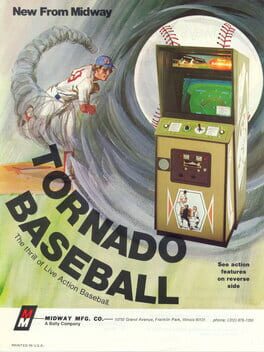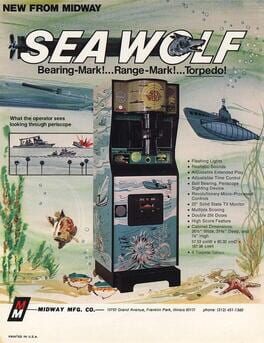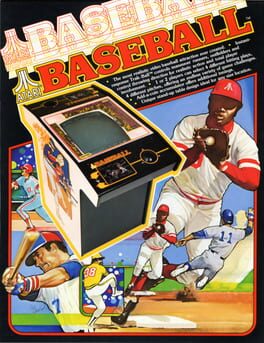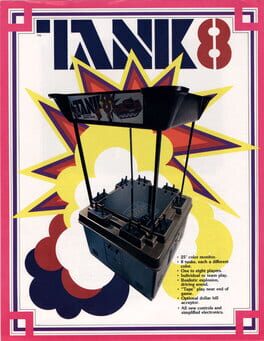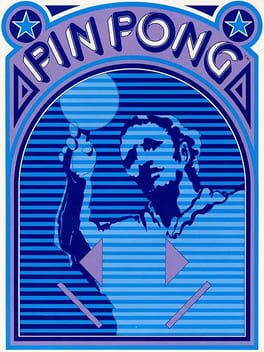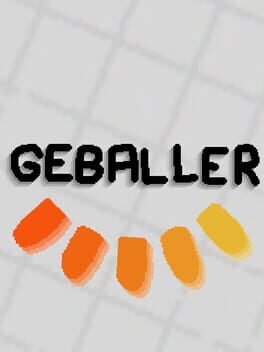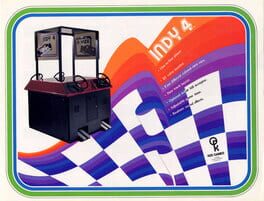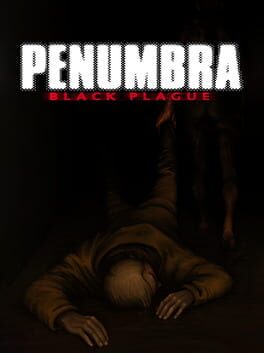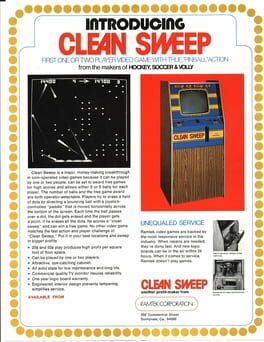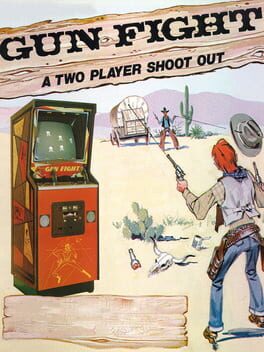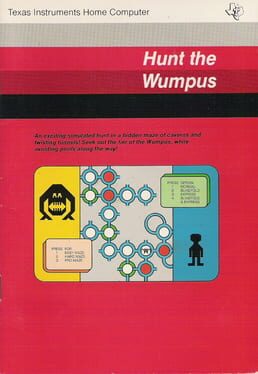2021
Me interesa la forma en que Modus parece haberse zambullido en tiempos recientes en el mundo de la nostalgia por lo poligonal en 32 bits. El trabajo que hicieron en Frontier era quizá mucho más convencional que lo que están intentando aquí, pero creo que hay más de una tendencia solapada en el deseo de evocar los mundos deshabitados y oníricos de aquella época y crear con ello un espacio que se siente inquietante y al mismo tiempo fascinante.
------
I'm interested in the way Modus seems to have recently plunged into the world of 32-bit nostalgia. The work they did on Frontier was perhaps much more conventional than what they're attempting here, but I think there's more of an underhanded tendency in the desire to evoke the uninhabited, dreamlike worlds of that era and thereby create a space that feels unsettling yet fascinating.
------
I'm interested in the way Modus seems to have recently plunged into the world of 32-bit nostalgia. The work they did on Frontier was perhaps much more conventional than what they're attempting here, but I think there's more of an underhanded tendency in the desire to evoke the uninhabited, dreamlike worlds of that era and thereby create a space that feels unsettling yet fascinating.
1976
1976
I really liked the presentation on this one, despite being a tad too finicky for my taste. Playing these games it soon becomes clear that Midway was becoming the first real competitor of Atari in an era where Atari had to make up its own competition to avoid being accused of being a monopoly.
----------------------------------------------------------------------
Me gustó la presentación de este juego, a pesar de tener unos controles demasiado estrictos para mi gusto. Al jugar a estas cosas, me queda claro que Midway se fue el primer competidor serio de Atari en un momento en el que tenía que inventarse su competencia para evitar que la acusaran de prácticas monopolísticas.
----------------------------------------------------------------------
Me gustó la presentación de este juego, a pesar de tener unos controles demasiado estrictos para mi gusto. Al jugar a estas cosas, me queda claro que Midway se fue el primer competidor serio de Atari en un momento en el que tenía que inventarse su competencia para evitar que la acusaran de prácticas monopolísticas.
1976
TBD
Había visto muchos juegos sobre espacios nostálgicos dominados por la nostalgia ochentera, el vaporwave y los vibes, pero muy pocos de ellos inciden en el carácter onírico y fundamentalmente incierto que estas imágenes poseen en realidad. Utilizar el motivo acuático y la falta de movimiento es la clave de que Mercury Island funcione, a pesar de ser tan corto en el resto de áreas.
-------
I have seen many games deal with nostalgic spaces that are dominated by eighties nostalgia, vaporwave and vibes, but very few of them emphasize the dreamlike and fundamentally uncertain character that they usually embody. Using the aquatic motif and the lack of movement is key to make this title work, despite being so lackluster in everything else.
-------
I have seen many games deal with nostalgic spaces that are dominated by eighties nostalgia, vaporwave and vibes, but very few of them emphasize the dreamlike and fundamentally uncertain character that they usually embody. Using the aquatic motif and the lack of movement is key to make this title work, despite being so lackluster in everything else.
It's definitely influential, but I wouldn't consider it as ground-breaking or relevant as future titles of the franchise (especially Aria of Sorrow). Still, it's a remarkable game that does a lot of things and, more importantly, creates an atmosphere to Dracula's castle that surpasses its condition as a big map with secrets. There are so many hidden things that you can find which make the world breathe, and you can customize Alucard's look in ways that feel very forward-thinking for the time. Still, the game has a little too much stuff than it needs, and by the time you reach the second half, it becomes redundant very fast. Besides, the extra modes are stupid. I would recommend playing it for the influence alone, but I wouldn't hail as a masterpiece.
1979
1976
Pure mayhem. Imagine playing this with other 7 losers with you. That would be totally far-out. Also, this is already Combat, so we've reached the part when video games became violent at last.
-----------------------------------------------------------------------------------
Puro caos. Imagina jugar esto con otros 7 perdedores contigo, sería estratosférico. Además, el juego ya se asemeja del todo al clásico Combat, por lo que hemos llegado a la parte en la que los videojuegos se volvieron violentos por fin.
-----------------------------------------------------------------------------------
Puro caos. Imagina jugar esto con otros 7 perdedores contigo, sería estratosférico. Además, el juego ya se asemeja del todo al clásico Combat, por lo que hemos llegado a la parte en la que los videojuegos se volvieron violentos por fin.
1974
As far as I know, there's no explanation on why this game, which obviously simulates a pinball machine, was called Ping Pong. Maybe I'm not remembering the specific paragraph in Atari Inc that explains it, but at any rate, this is a milestone in gaming history to be sure.
-------------------------------------------------------------------------------
Que yo sepa, no hay explicación de por qué este juego, que obviamente simula una máquina de pinball, se llamaba Ping Pong. Tal vez no estoy recordando el párrafo específico en Atari Inc que lo explica, pero en cualquier caso, se trata indudablemente de un hito en la historia del videojuego.
-------------------------------------------------------------------------------
Que yo sepa, no hay explicación de por qué este juego, que obviamente simula una máquina de pinball, se llamaba Ping Pong. Tal vez no estoy recordando el párrafo específico en Atari Inc que lo explica, pero en cualquier caso, se trata indudablemente de un hito en la historia del videojuego.
2022
Como un Super Hexagon en miniatura. El ritmo queda superpuesto por la habilidad, y tras una primera sesión intensa y dinámica, quedan por descubrir las versiones más complicadas del mismo reto. El camino formalista trazado por Stuffed Wombat queda marcado aquí en su totalidad, y supone una continuación ideal de Qomp. Tal vez lo principal que se echa en falta es demasiada repetición al final del todo.
--------------
small-time Super Hexagon. The rhythm is trumped by skill, and after an intense and dynamic first session, the more complicated versions of the same challenge remain to be discovered. The formalist path traced by Stuffed Wombat is marked here for everyone to follow, and acts as an ideal sequel to Qomp. Perhaps the main thing lacking here is a certain repetition at the end.
--------------
small-time Super Hexagon. The rhythm is trumped by skill, and after an intense and dynamic first session, the more complicated versions of the same challenge remain to be discovered. The formalist path traced by Stuffed Wombat is marked here for everyone to follow, and acts as an ideal sequel to Qomp. Perhaps the main thing lacking here is a certain repetition at the end.
1976
In many ways, this is the direct antecessor of Combat for the Atari 2600. A game set around the idea of making movement very envolving and getting accustomed to its quirks before the rival does. I really admire the work that went on to create this.
---------------------------------------------------------------------------
En muchos sentidos, es el antecesor directo de Combat para la Atari 2600. Un juego basado en un movimiento muy complejo y en tener que acostumbrarte a él antes de que lo haga el rival. Admiro el trabajo que tuvo que haber a la hora de concebir esto.
---------------------------------------------------------------------------
En muchos sentidos, es el antecesor directo de Combat para la Atari 2600. Un juego basado en un movimiento muy complejo y en tener que acostumbrarte a él antes de que lo haga el rival. Admiro el trabajo que tuvo que haber a la hora de concebir esto.
Aunque no lo considero la mitad de excelente que Overture en su cuidado equilibrio de tensiones, Black Plague es meritorio por ser uno de los primeros juegos en introducir toques de posmodernidad al género que aún estaba por nacer. Con Clarence haciendo las veces de narrador engañoso, el carácter trágico y solitario de Overture se ve sustituido por una suerte de burla constante hacia las convenciones que Frictional está evocando constantemente en su homenaje a la Cosa y tantas historias de terror ártico. Como ya dije, creo que es un equilibrio más difícil de apuntalar por cuanto se derriba a sí mismo, pero sería difícil negar su impacto en la escena posterior.
------------
Although I don't consider it half as excellent as Overture in its careful balance of tensions, Black Plague deserves credit for being one of the first games to introduce touches of post-modernity to the genre that would be born soon after it. With Clarecen acting as a trickster narrator, the tragic and lonely character of Overture is replaced by a constant mockery of the tropes that Frictional is evoking by homaging The Thing and so many arctic horror stories. As I said, I think it's a harder balance to maintain and it ends knocking itself down, but it would be hard to deny its impact on the later scene.
------------
Although I don't consider it half as excellent as Overture in its careful balance of tensions, Black Plague deserves credit for being one of the first games to introduce touches of post-modernity to the genre that would be born soon after it. With Clarecen acting as a trickster narrator, the tragic and lonely character of Overture is replaced by a constant mockery of the tropes that Frictional is evoking by homaging The Thing and so many arctic horror stories. As I said, I think it's a harder balance to maintain and it ends knocking itself down, but it would be hard to deny its impact on the later scene.
1974
Nowadays, this is signaled as one of the first commercial "clones" in videogame history, as we understand them today, and serves as a fascinating glimpse into the artistic impulses that propelled early developers that attempted to outbeat a hit title in their own space (previously I said that game was Breakout, which was obviously wrong. The game that they were drawing inspiration from was obviously Pong). With that being said, the notion of "clone" itself entails a series of assumptions that one can't easily apply to this particular period so easily, and if anything, it's more of a testament to the fact that we are willing to categorize the past of the medium with modern, largely broad strokes. What I can say regarding Clean Sweep in particular, I think it's apparent that the impulse here orbited around filling the screen with more stuff to do, which doesn't stray too far away from the way in which we tend to distinguish original works from copy-cats today. It's usually not a fair optic, but it's also the way in which much gaming media operates, which is a problem when trying to discern what makes a particular work significant. Unfortunately, with this game in particular in particular I don't think there's that much value to extract from, as it gets boring pretty quickly.
---------------------------------------------------------------------------------------
A día de hoy, este juego se trata como uno de los primeros "clones" comerciales en la historia de los videojuegos, tal como se entienden hoy, y sirve como muestra del tipo de impulsos artísticos que impulsaban a desarrolladores a superar un título exitoso (antes dije que era Breakout, cuando obviamente se trataba de Pong). Dicho esto, la noción de "clon" en sí implica una serie de suposiciones que uno no puede aplicar tan fácilmente a este período, y en todo caso, es más una muestra de nuestra tendencia a categorizarlo todo con brocha gorda y adecuada a nuestras sensibilidades modernas. Lo que puedo decir de Clean Sweep en particular es que, a la hora de construir su espacio de juego, parece creer que la clave es llenar la pantalla con más cosas, lo que pensándolo bien es el tipo de elemento que mucha gente emplea para distinguir un original de la copia barata. Es una mirada que puede ser muy injusta y que en ocasiones nos impide observar los detalles particulares que hacen a una obra única. Desafortunadamente, con este juego se hace difícil extraer algo de valor, porque se hace aburrido muy deprisa.
---------------------------------------------------------------------------------------
A día de hoy, este juego se trata como uno de los primeros "clones" comerciales en la historia de los videojuegos, tal como se entienden hoy, y sirve como muestra del tipo de impulsos artísticos que impulsaban a desarrolladores a superar un título exitoso (antes dije que era Breakout, cuando obviamente se trataba de Pong). Dicho esto, la noción de "clon" en sí implica una serie de suposiciones que uno no puede aplicar tan fácilmente a este período, y en todo caso, es más una muestra de nuestra tendencia a categorizarlo todo con brocha gorda y adecuada a nuestras sensibilidades modernas. Lo que puedo decir de Clean Sweep en particular es que, a la hora de construir su espacio de juego, parece creer que la clave es llenar la pantalla con más cosas, lo que pensándolo bien es el tipo de elemento que mucha gente emplea para distinguir un original de la copia barata. Es una mirada que puede ser muy injusta y que en ocasiones nos impide observar los detalles particulares que hacen a una obra única. Desafortunadamente, con este juego se hace difícil extraer algo de valor, porque se hace aburrido muy deprisa.
1975
1973
This is a funny, quick, not very complex game of hide and seek that basically amounts to clicking an option and see if you died or not. Such a simple premise showcases the kind of tension that computer games of the era usually focused on, but today, it's mostly pretty funny and harmless.
---------------------------------------------------------------------------------
Se trata de un divertido, rápido y no muy complejo juego del escondite que básicamente consiste en pulsar una opción y ver si mueres o no. Una premisa tan simple muestra el tipo de tensión en el que se solían centrar los juegos de ordenador de la época, pero hoy en día resulta bastante divertido e inofensivo.
---------------------------------------------------------------------------------
Se trata de un divertido, rápido y no muy complejo juego del escondite que básicamente consiste en pulsar una opción y ver si mueres o no. Una premisa tan simple muestra el tipo de tensión en el que se solían centrar los juegos de ordenador de la época, pero hoy en día resulta bastante divertido e inofensivo.

